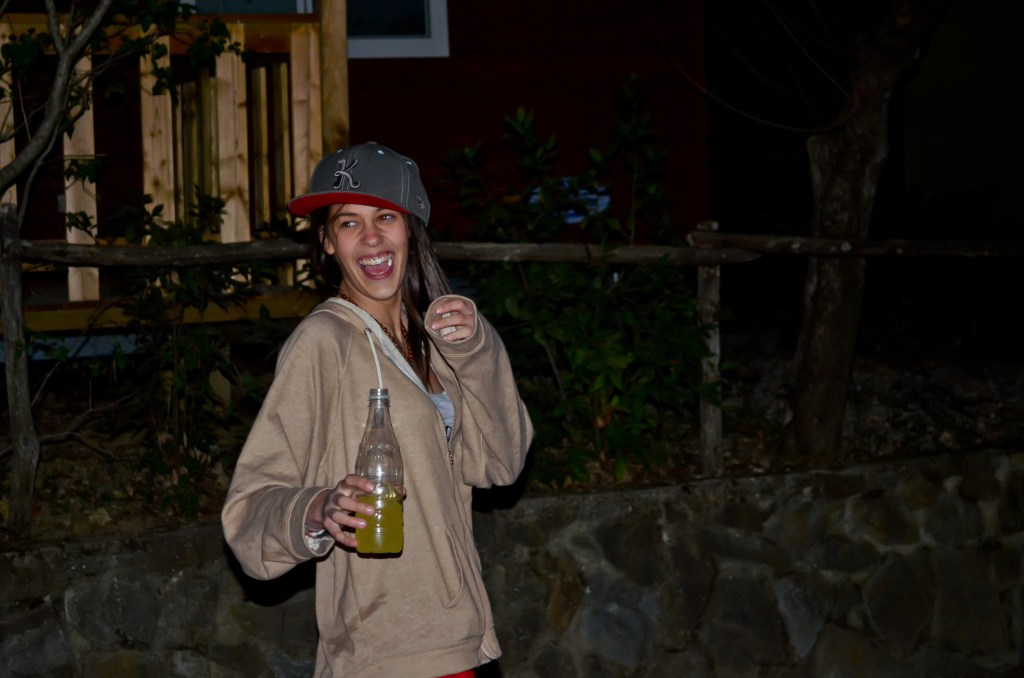
Photo of Bahraini protesters by Ahmed Al Fardan
After a year or so of beating everyone at the internet, South Korea has decided to impart a different kind of cultural impact on the rest of the world: supplying instruments of repression to Bahrain, one of the Middle East’s most autocratic nations.
Videos by VICE
The country’s Arab Spring uprising has continued since February 2011, and the main players seem to have all but given up on trying to find a solution. Instead of dealing with the protesters’ demands for reform and improved social justice, the government live ammunition and rubber bullets at them during previously peaceful protests.
A document leaked to UK-based advocacy group Bahrain Watch stated that the kingdom planned to import a whole load of tear gas from South Korea to use against civilians. The shipment amounts to approximately 1.6 million tear gas canisters and 90,000 grenades, leaving the country with more of the stuff than its 1.3 million citizens.
What’s fuelling the demand for tear gas?
Bahrain sits between Saudi Arabia and Iran. Saudi Arabia is a Western ally, in league with the militant Sunni extremists fuelling the rebels in Syria while Iran is an ideological enemy of the West, Shia theocratic state, Assad ally, and regional rival of Saudi Arabia. While the US was still flirting with the idea of bombing Syria for their alleged use of chemical weapons, Washington presented a plan to resolve the Bahraini conflict. The hope was that Iran would be grateful for the US resolving a civil war raging on its doorstep and would neutralize its involvement with the Assad regime, forgiving America for dropping peace bombs all over the country.
While Iran never explicitly agreed to withdraw its support for Assad, it publicly approved of the US resolution in Bahrain. Things were beginning to look up for the Bahraini people, but now that Syria isn’t going to be the recipient of tons US ordinance, the State Department and Pentagon no longer feel the need to placate Iran by solving the problems in Bahrain.
The fading hopes of a compromise prompted the hardliners in the Bahraini regime, backed by their Saudi patrons, to renew their crackdown on the dissidents. Authorities armed themselves with enough tear gas to disperse protesters for the next decade or so, arrested the deputy head of the opposition party, Khalil al-Marzooq, and jailed dozens for allegedly being part of the February 14 movement, an Anonymous-like youth coalition that have been blamed for encouraging violent street protests.
This has been accompanied by a number of reports that the Bahraini government is seeking a treaty with the UK in order to extradite “Shi’ite terrorists,” who they claimed are looking to undermine the regime from London. It’s highly unlikely that the UK would sign such a treaty, especially since the Bahrain government wants to arrest British citizens. So one potential explanation for the proposed treaty is that the Sunni regime simply want to demonize the Shi’ite Muslims taking part in the uprising.
The next thing the protesters have to look forward to is, of course, the prospect of having barrages of tear gas fired at them every time they demonstrate. According to various sources, Bahraini police have already killed between 26 and 77 with their use of tear gas—through suffocation, firing canisters directly at protesters’ necks and heads, or causing miscarriages after pregnant women suffered prolonged exposure to the gas. The number of those treated for tear gas inhalation is impossible to verify: many are treated at home or in private clinics, because the main hospitals are government-controlled and people are afraid of the consequences of being treated for protest-related injuries.
This kind of thing has been going on in Bahrain for the last two years, so anyone selling tear gas to the country can’t be under any illusions as to what it will end up being used for.
Both the UK and US said that they do not export equipment used for repressive crowd control, most likely because it doesn’t play too well to their domestic audiences and undermines their stated commitments to human rights. However, Bahrainian dictators could just go to an arms fair, like this one hosted in London to buy weapons from companies based elsewhere.
Which is perhaps how Bahrain ended up looking to countries with less developed human rights organizations—like South Korea, where companies like DaeKwang appear to have become the primary supplier of tear gas to Bahrain. Though they don’t seem to be overly proud about it, given that their canisters all arrived in the kingdom unmarked.
The value of the DaeKwang contract could be worth between $25 to $30 million if the price is $10 to $20 per canister, though it’s likely that the final price would be inflated due to commissions (otherwise known as bribes) for middle-men, like brokers and members of the royal family who are well known to skim business deals to stuff their own pockets.
This kind of corruption intially united Bahrainis of all backgrounds against the regime at the start of the 2011 uprising. Those in charge divided and ruled Bahraini society, emphasising the sectarian divisions between Shi’ite and Sunni protesters to isolate protesters. But in doing all this, the Bahraini regime became its own worst enemy, persevering all the policies that originally fuelled social unrest.
Follow John on Twitter: @jwsal
More from Bahrain’s forgotten uprising:
Things Are Going Terribly in Bahrain



